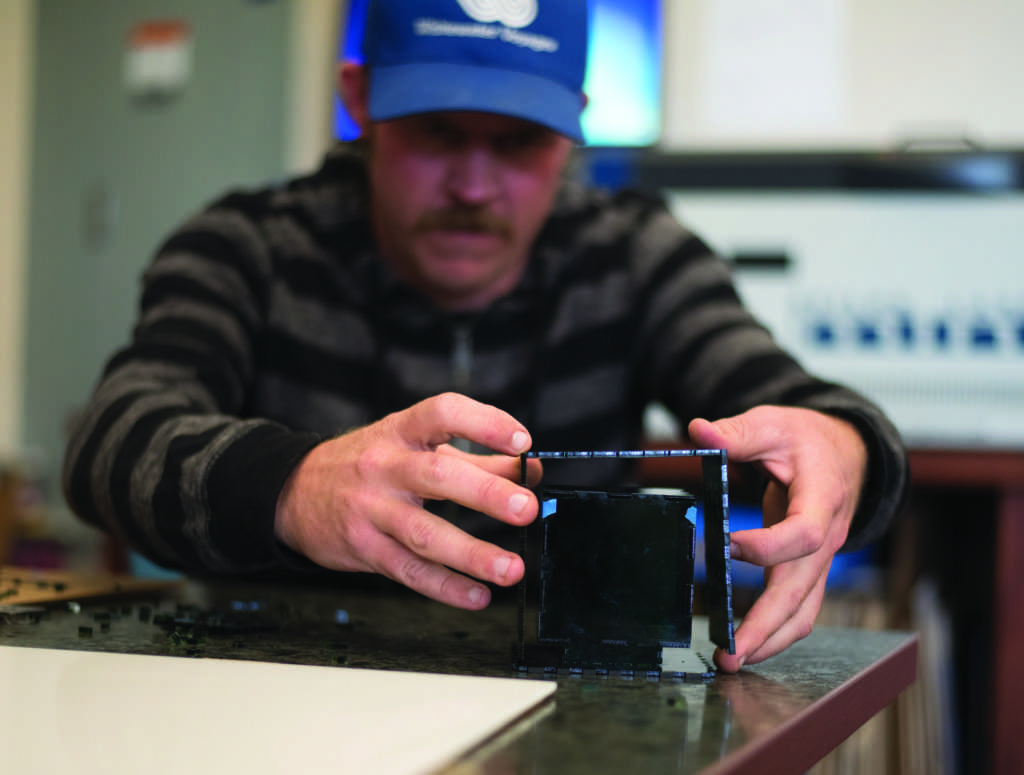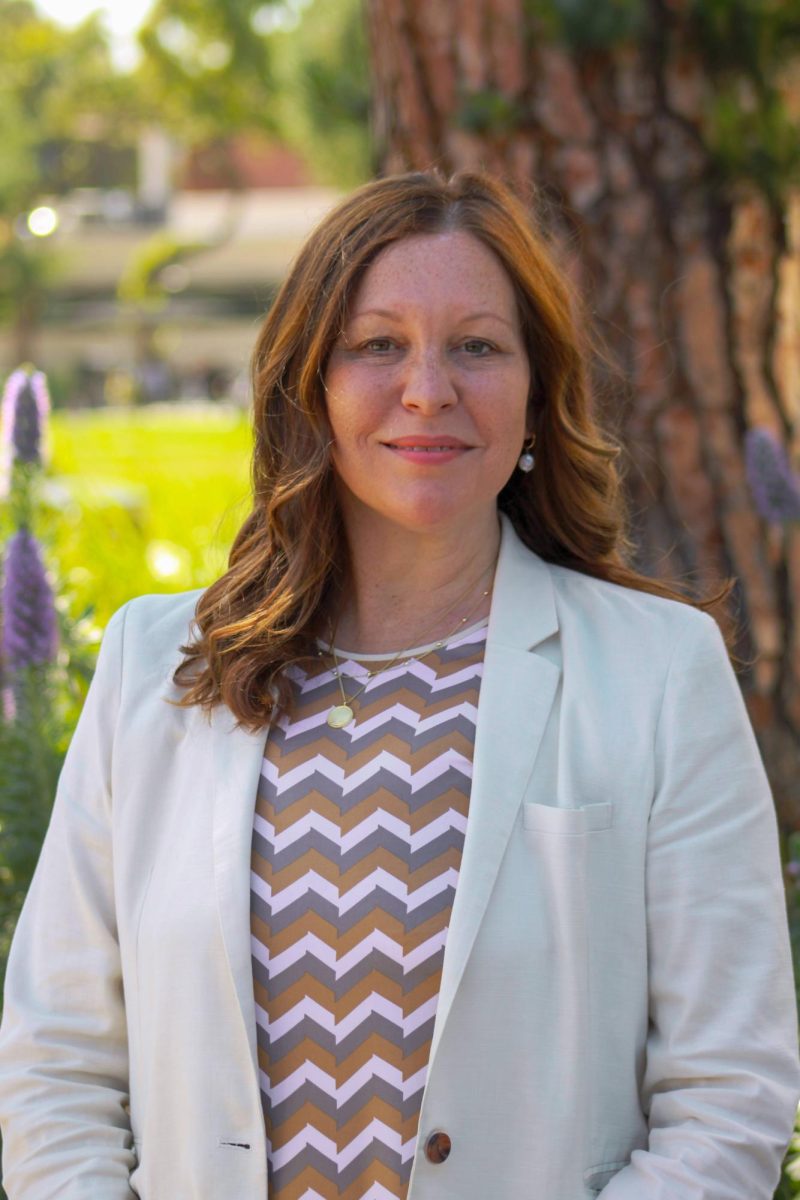By Runa Lemminn
News Editor
CSU Bakersfield’s three engineering departments have been waiting for over a year to become formally accredited.
Becoming accredited will put them on a more even playing field with other CSUs, as well as universities across our country.
Most companies want to hire engineers who have graduated from an accredited program.
Louis Amestoy, Public Affairs Specialist for Aera, said the current oil pricing environment is forcing a more targeted recruitment for his company.
“Aera is focusing on accredited engineers,” said Amestoy.
Those students looking for an engineering career in the Navy or other military branches have to graduate with a degree from an accredited school.
Naval Petty Officer First Class Johnson said the Navy requires engineers to be accredited.
Currently, CSUB engineering students have some options.
One is to graduate and work for an apprenticeship program.
California Resources Corporation has a regular summer 12-week program for CSUB engineering graduates.
Katherine Layus, a CSUB alum and University Relations Lead for CRC, said if the company likes the engineer, a lack of an ABET accreditation is not a deal-breaker.
“We’ve hired on quite a few CSUB students for CRC as interns and contractors,” said Layus.
Another option for engineering students currently graduating with a bachelor’s degree is to continue on to a graduate school that has an accredited program.
Jaems Flowers, a senior electrical engineering major, said he’s probably heading to Sacramento State University to get his masters.
“Sac State is accredited, and because they’re in the CSU system, they have to take me,” said Flowers.
Once the CSUB engineering programs become accredited, it will be retroactively applied to anyone who graduated during the process.
The accreditation process affects students.
Computer engineering senior Amrit Singh said in general, tests are harder now.
“I think the accreditation is good, but I think it makes our major even harder than it already is because it sets a pretty high standard,” said Singh.
The accrediting agency is the Accreditation Board for Engineering and Technology, or ABET.
ABET is headquartered in Baltimore, Maryland, but is actively accrediting institutions in over 30 countries, according to ABET.org.
Even before the official accreditation process can begin, many things have to already be in place.
Physics and Engineering Chair Dr. Jorge Talamantes said there was a lot of background work involved.
Part of that work was getting the CSUB general education requirements to mesh with the requirements from ABET.
“We had to get concessions from the campus so that the general education package is not quite as large, so that we have enough units to satisfy ABET,” said Talamantes.
Once the required units were straightened out, there was the time issue. This included a wait that took years.
“You can’t apply right away. You have to have students make it through the entire program and graduate. That’s when you can apply,” said Talamantes.
Applying for accreditation is not as easy as simply filling out an application. CSUB’s engineering programs cannot be accredited as a whole.
The three departments are going through the accreditation process individually: Engineering Sciences, Computer Engineering, and Electrical Engineering.
Melissa Danforth, Computer and Electrical Engineering and Computer Science chair, said CSUB will find out individually for each of the three programs.
Danforth said all three of the engineering departments are approximately halfway through the two-year process.
“We are doing our best to make sure all three programs are successful, but there is a possibility that they are not all three successful.”
The first year is comprised of a self-study, which is a description of the program in its entirety.
“[It’s] basically a 200 to 300 page description of your program,” said Danforth. “Everything from policies on admissions, transfers and graduation, all the way up through the curriculum and the facilities and the resources you have available.”
Once the final self-study is approved, the process moves into the second stage.
“Now we’re moving into the visit stage, where they’ll actually send a team out to the campus, one evaluator for each of the three programs. Each program is evaluated individually,” said Danforth.
The ABET accreditation teams are visiting CSUB in November for three days.
Danforth said the team is looking through binders full of documentation for each course. The team is also looking at the level of student work being produced.
“That binder has everything from the lab handouts and homework assignments all the way through student work that was submitted,” said Danforth.
The ABET team will also be talking to a lot of people at CSUB.
“They are very picky. They will be talking to everybody. They are going to be talking to students, faculty, administrators, advisors, enrollment management,” said Talamantes.
The School of Natural Sciences, Mathematics, and Engineering Dean Kathleen Madden said her department heads have worked very hard.
“Mostly they are the ones who are making sure the curriculum is in place, making sure they are following the policies and procedures that need to be followed, and making sure they have the good experiences for the students,” said Madden.
After the team leaves, there is a six month due process stage, where the ABET team officially records and summarizes the findings from their visit.
The engineering departments are given a chance to rectify anything amiss that was found by the team. After that, if the departments are accredited, ABET will post it on their website.
CSUB’s engineering schools will find out in August 2018 if they are officially accredited. Flowers said he feels optimistic about the process in general.
“I have faith that CSUB will become accredited,” said Flowers, the student.
In the unforeseeable event that a department doesn’t get accredited, engineering graduates will continue to have the same options as before.
“Once you’ve been in the field, experience counts for more than school accreditation,” said Flowers.

Photo by Simer Khurana/ The Runner






